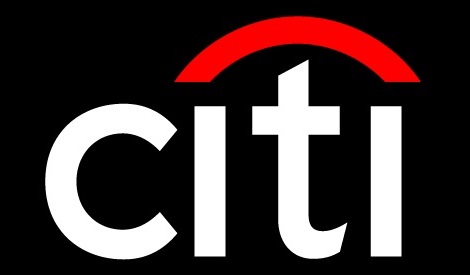Banking, finance, and taxes
Citigroup Ranked Last in Investor Satisfaction Study
Published:
Last Updated:

That is the conclusion of new research reported Thursday in the “J.D. Power 2015 U.S. Full Service Investor Satisfaction Study.” The researchers surveyed more than 5,300 investors in January and February of this year who make some or all of their investment decisions with the help of an investment advisor. Scores are tabulated on a 1,000-point scale.
The industry average score is 807 and the range goes from a high of 812 to a low of 738. Citigroup Inc. (NYSE: C) is the lowest scoring advisory firm, while Edward Jones and Fidelity Investments are tied at the top.
The median age of full-service investors is 61, and J.D. Power noted that “investment advisors and firms are missing a tremendous opportunity to position themselves for the anticipated generational transfer of wealth over the next few decades.” The director of Power’s wealth management practice said:
Talking to clients about their beneficiaries may feel awkward to many advisors, but most investors want their wealth to benefit the next generation. Many times, investors themselves struggle in money-related conversations with their kids, and an advisor is in a unique position to be a bridge between generations. Firms that can effectively train and support their advisors in this regard have a real opportunity to differentiate their services.
ALSO READ: Why Many Banks Need Fed Interest Rate Hikes Sooner Rather Than Later
As it is, there appears to be very little differentiation, at least at the top of the rankings. That five-point gap between the top scorers and the industry average indicates that differentiation based on the client experience is limited at best.
Among the lower ranked firms, we might draw a similar conclusion about differentiation, but the lower an advisory firm’s score the more difficult it is likely to be to both improve performance and emphasize how the firm is different and better than competitors. According to the study, among the firms that score above average, 48% of clients say they “definitely will” recommend that firm, compared with just 37% of clients whose firms score below average.
On the brand loyalty measurement, 46% of investors with firms ranked above the average say they “definitely will not” switch advisory firms, compared with 38% of investors with firms that score below average. In this regard J.D. Power noted:
While there is only a 2 percentage point gap in share of wallet between above- and below-average firms (86% vs, 84%, respectively), it can translate into a significant increase in a firm’s assets under management.
What that suggests is that investors are loath to change advisors, no matter how bad they are. That is good news for Citigroup and bad news for the top-ranked firms. With a little imagination, the firms that rank between the two extremes could make some changes to differentiate themselves further from the lowest ranked firms, promote those changes, and marginalize Citi even further.
ALSO READ: Ahead of Earnings, Which Bank Stock Is Cheapest?
In addition to Edward Jones and Fidelity Management, the other firms scoring at or above the 807 average were Charles Schwab, Wells Fargo Advisors, Raymond James and Ameriprise Financial.
Advisory firms scoring “about average” include Merrill Lynch Wealth Management; Stifel, Nicolaus & Co.; U.S. Bank; and RBC Wealth Management. Firms ranked among “the rest” are UBS Financial Services, LPL Financial, Morgan Stanley Wealth Management, Lincoln Financial Network, AXA Advisors, Northwestern Mutual, Chase Investment Services and, at the bottom, Citigroup.
Credit card companies are pulling out all the stops, with the issuers are offering insane travel rewards and perks.
We’re talking huge sign-up bonuses, points on every purchase, and benefits like lounge access, travel credits, and free hotel nights. For travelers, these rewards can add up to thousands of dollars in flights, upgrades, and luxury experiences every year.
It’s like getting paid to travel — and it’s available to qualified borrowers who know where to look.
We’ve rounded up some of the best travel credit cards on the market. Click here to see the list. Don’t miss these offers — they won’t be this good forever.
Thank you for reading! Have some feedback for us?
Contact the 24/7 Wall St. editorial team.